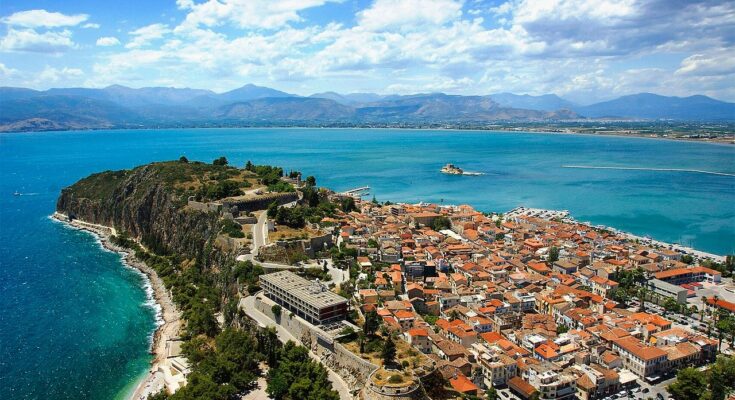Argolis, a captivating region in the Peloponnese, offers a rich blend of history, culture, and natural beauty. As an essential destination in Greece, it draws visitors to its ancient sites, stunning landscapes, and vibrant local traditions. Exploring Argolis provides a deep connection to the ancient world while offering modern travelers a unique and immersive experience.
Located at just under a two-hour drive from Athens, the Argolid Peninsula in the Peloponnese region has a variety of historical sites and is absolutely beautiful with a rich culture for tourists looking for a spectacular vacation in Greece.
The first stop on a trip to the area is Argos, the largest city in the region and its namesake, considered to be the longest continually inhabited town in Europe.
The city is dotted with ancient ruins of citadels and theaters denoting one of the town’s greatest legends as being the home base of the Mycenaean civilization which ruled over Greece from 1600 to 1100 BC.
Nafplio a must-see when visiting Argolis in the Peloponnese
The nearby seaport town of Nafplio is also located on the Argolid Peninsula and is another must-see on your vacation in Greece.
Nafplio was the first capital city of modern Greece, and, to this day, you can see well-preserved ruins of the fortress walls, located on the mountainside, towering over the town.
This charming and romantic town has small streets that wrap around neoclassical buildings and picturesque squares, making it the perfect place to visit anytime of the year.
Next on the list of places you must visit while you travel Greece’s Argolid Peninsula is Epidaurus. Here, you will find everything from ancient ruins and an impressive ancient Greek theater to a quaint town with tavernas serving up local treats.
The ancient theater of Epidaurus
Epidaurus is a must-see on any trip through the Peloponnese, and, during the summer months, there are weekend shows at the ancient theater of Epidaurus that draw in crowds of thousands of spectators worldwide.
The ancient theater of Epidaurus was designed by Polykleitos in the fourth century BC. The original thirty-four rows were extended in Roman times by another twenty-one rows. It seats up to fourteen thousand people.
The theater is admired for its exceptional acoustics, which permit almost perfect intelligibility of un-amplified spoken words from the proscenium to the entirety of spectators regardless of their seating.
Some even claim that audiences are able to hear a pin drop or a match being struck from any seat in the house.
Just when you thought you have seen all that the region has to offer, you realize there is so much more history and beauty to explore when you visit Tolo.
This small village was first written about by Homer, who referred to it as Asini in The Iliad. Asini was one of the cities whose fleet took part in the Trojan War.
The quiet beaches of Tolo allow one to relax and enjoy the views and clear blue waters.
Before you leave Tolo, be sure to visit the ruins of Ancient Asini, located just outside of the village on top of a hilly cape. This small fishing village has become a top destination for tourists.
The place to stay while visiting the region is Drepano, a village close to Tolo and next to Ancient Asini. It’s perfect for families, friends, and couples to relax and unwind.
Sustainable Tourism in Argolis
As tourism grows in Argolis, efforts to preserve its cultural and natural heritage have become increasingly important. The region has embraced sustainable tourism practices, ensuring that its ancient sites and natural beauty are protected for future generations.
- Eco-Friendly Initiatives: Local businesses are adopting eco-friendly practices, such as reducing waste and conserving water, to minimize their environmental impact.
- Heritage Conservation: Collaborative efforts between local authorities and international organizations aim to protect historical sites like Mycenae and Epidaurus from the pressures of tourism.
- Promotion of Local Culture: Sustainable tourism in Argolis also emphasizes the importance of supporting local artisans and preserving traditional crafts, offering visitors authentic cultural experiences.



